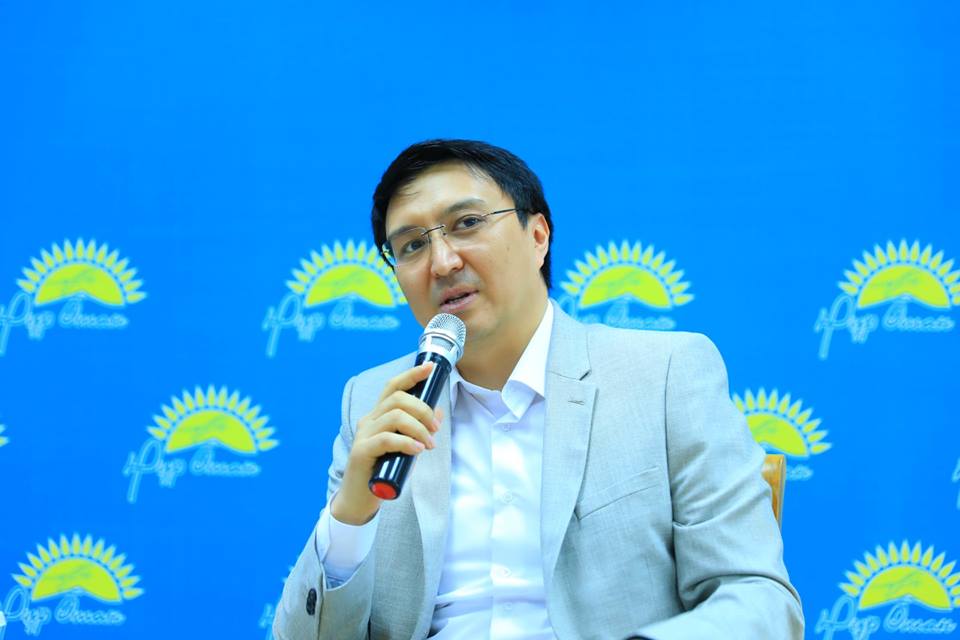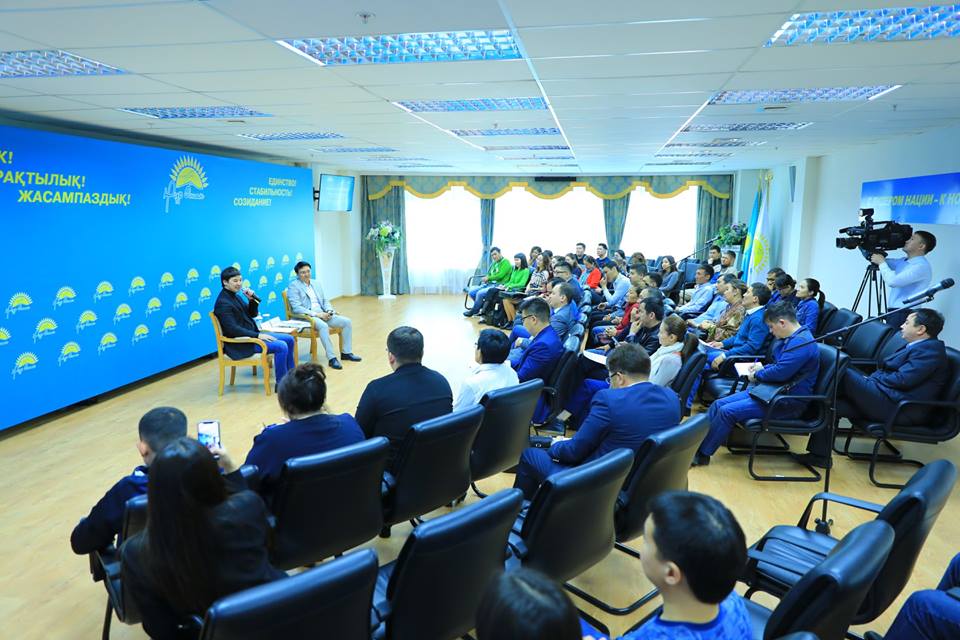ASTANA – Kazakh Vice Minister of Labour and Social Protection Nurzhan Altayev held an open lecture at Nur Otan Party headquarters dedicated to the country’s nationwide mass entrepreneurship programme.
Altayev reviewed the development of the programme, how to participate in it, how to get a microloan and how to open a new business. More than 60 people attended the lecture, including aspiring entrepreneurs, former students and working youth.
As noted by Altayev, when opening a business, young people often lack financial resources and knowledge about running the business. This is particularly noticeable in rural areas. The vice minister discussed the basic allocation mechanisms of preferential microloans to beginning entrepreneurs.
The unemployed, self-employed, small business entities and members of agricultural cooperatives are eligible to apply for the programme. To receive a loan, individuals can contact local employment centres, branches of the Atameken National Chamber of Entrepreneurs or the akimats (administrations) of their rural districts.
Before a loan is distributed, a potential businessman is tested for entrepreneurial skills and must take part in a month-long training course on the basics of entrepreneurship under the Bastau business project. Training is carried out by staff from the National Chamber of Entrepreneurs face-to-face or online.
Last year, 15,000 people studied the basics of entrepreneurship and 7,000 of them received loans and opened businesses. According to the vice minister, successful business projects have been launched in the field of honey production, crop management and livestock production. This year, training will be offered to 30,000 people.
After the training, participants of the programme receive certificates that allow them to apply for a loan at a 6 percent annual percentage rate with real estate or land plots pledged as security.
Adobe houses and land plots that commercial banks will not accept as collateral can be pledged for microloans, and a good business plan will receive a guaranteed microloan. In addition to ideas, however, a clear financial plan is required, said Altayev, as he urged young people to risk and try their hand at business.
To microfinance business, the national government has adopted a programme for the development of productive employment and mass entrepreneurship for 2017 to 2021. Last year, 42 billion tenge (US$129 million) was allocated for microloans to beginning entrepreneurs. In the current year, an additional 20 billion tenge (US$61 million) was allocated. Most will be directed toward entrepreneurs in rural areas.


